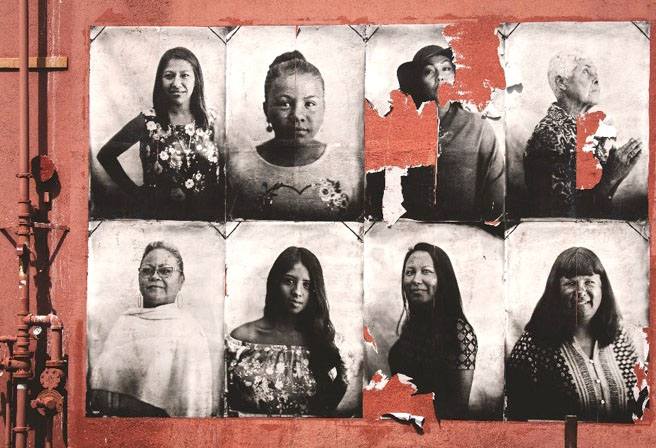 We, in the department of HDFS, define diversity and culture both in the United States and around the world on dimensions including (but not limited to) gender identity, sexual identity and orientation, race and ethnicity, culture, disability/abilities, religion, age, economic status, disparities, and local community functioning and norms. Diversity includes individuals and groups, and also thoughts and attitudes. HDFS researchers understand that the definition of diversity is ever-changing and constantly being ratified. We cultivate a climate where diverse views are welcomed and respected.
We, in the department of HDFS, define diversity and culture both in the United States and around the world on dimensions including (but not limited to) gender identity, sexual identity and orientation, race and ethnicity, culture, disability/abilities, religion, age, economic status, disparities, and local community functioning and norms. Diversity includes individuals and groups, and also thoughts and attitudes. HDFS researchers understand that the definition of diversity is ever-changing and constantly being ratified. We cultivate a climate where diverse views are welcomed and respected.
UConn supports a collegial and vibrant environment that promotes and nurtures perspectives that are informed by our cultures, experiences, and values. A strength of the UConn HDFS department is the large number of faculty and graduate students who consider development and families across a wide range of diverse constructs, including:
- Diverse cultures within the United States: Stressful life transitions during middle & later adulthood in African American families; cultural influences on parent-child relations in Latino American and immigrant families; interracial families; ethnic-racial minority youth development (including multiethnic/racial youth); adolescents’ understanding of Arab-Jewish peer exclusion
- Diverse populations outside the United States: Children and families across the lifespan from a range of countries including, but not limited to, Germany, Netherlands, Israel, Philippines, South Africa, and Botswana.
- Diversity in gender and sexual identity: hooking up among sexual/gender minorities; sexual health among bisexual men; HIV prevention among Black men and transgender women who have sex with men; LGBTQ+ youth wellbeing and experiences; gay and lesbian Deaf individuals’ experiences
- Other diverse populations: Our faculty study diversity on many other dimensions, including research that addresses youth’s experiences of weight-based discrimination; social and political aspects of disability; deaf children with cochlear implants; nutrition and health among families using food pantries; children in low income families
- Improving the lives of individuals from diverse social and cultural contexts: interventions and community based programs to reduce and eliminate health disparities; reducing intergroup victimization and bullying; PrEP interventions for HIV/STI prevention among Black gay/bisexual men and transgender women; ethnic minority health and wellbeing; marital stability in the context of race and gender; ethnic-racial minority and immigrant youth development; sexual identity; racial identification and developmental outcomes; risk and protective factors for sexual health among bisexual men; stigma and health care; sexuality and aging
- Approaches and Frameworks: HDFS faculty use various multidisciplinary and interdisciplinary approaches as well as a variety of quantitative and qualitative methods to understand how diversity and culture affect outcomes of individuals, families, and communities, including theories of culture and human development; culturally-appropriate measurements; parental and professional ethnotheories of child development and behavior; feminist theory; disability studies
HDFS students also have access to a number of other resources related to diversity and culture both in and outside of the department, including the Center for the Study of Culture, Health and Human Development, the Center for Applied Research in Human Development, the Center for the Study of Interpersonal Acceptance & Rejection; the Institute for Collaboration on Health, Intervention, and Policy, the Rudd Center for Food Policy and Obesity, and the UConn Center for Excellence in Developmental Disabilities.
Students can also concurrently pursue a range of relevant certificate options, including Culture, Health, and Human Development, Race, Ethnicity, and Politics; ; Human Rights; Women, Gender, and Sexuality Studies; Social Determinants of Health and Disparities; and Disability Studies in Public Health. The Graduate School website has a full list of all available Certificate Programs for Master's and Doctoral Students.